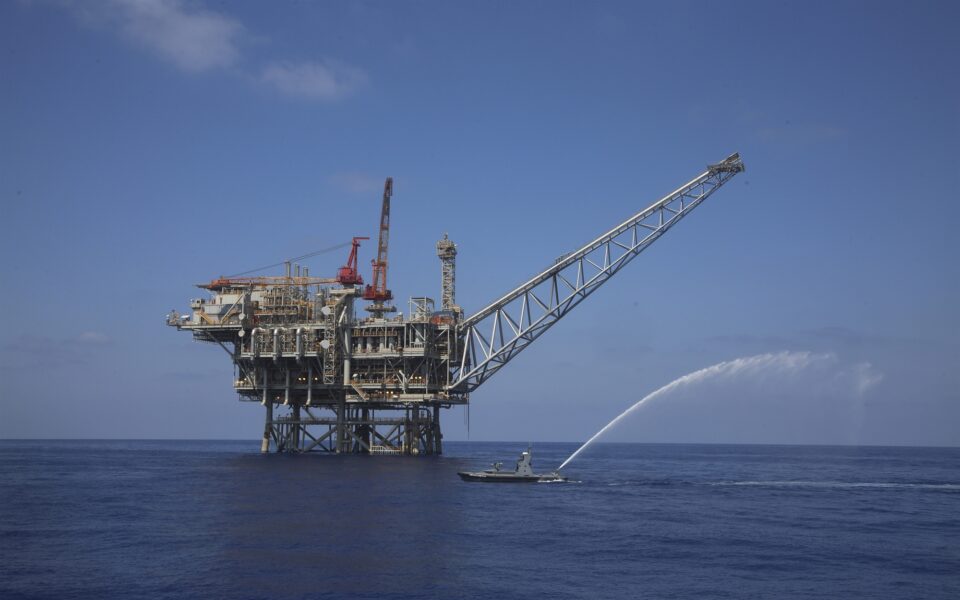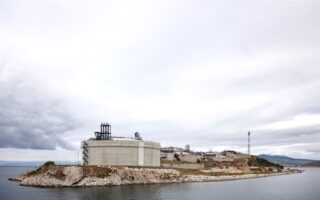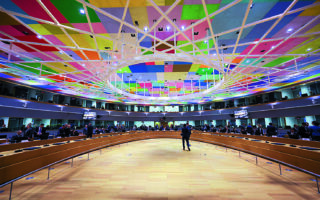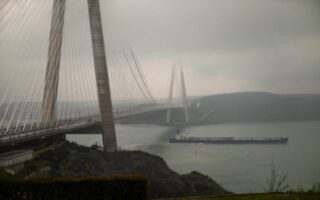An alternative paradigm for the Greek-Turkish maritime dispute

Notably, the constantly turbulent Greek-Turkish maritime dispute has been going through another hot phase since 2020 that reached a culmination at the end of 2022, when Turkish Foreign Minister Mevlut Cavusoglu reminded us of the Turkish casus belli threat, should Greece exercise its inalienable right to extend its territorial waters to 12 nautical miles south and west of Crete. The reasoning behind Athens’ possible move and Turkey’s reaction is their intension to explore for hydrocarbons in the area.
The same area, however, is already experiencing some disconcerting climate changes manifested in unprecedented wildfires and extreme heatwaves that have triggered mega-fires and released high levels of carbon dioxide, further exacerbating global warming. Due to anthropogenic emissions of greenhouse gases, the climate is changing in the Mediterranean Basin, historically and projected by climate models, faster than global trends. The Mediterranean is recognized by international organizations and climate experts as a climate change “hotspot” – i.e. as a region that is expected to face wide-ranging and long-lasting environmental reverberations. For the future, the region is expected to remain among those most affected by climate change, particularly when it comes to precipitation and the hydrological cycle. Temperatures are going up 20% faster than the global average, and this is already having real and serious consequences. Against this background, the insistence of the two countries on exploration for and production of hydrocarbons entailing a geopolitical competition to secure control of fossil fuels or to extend their economic exclusive zones at the expenses of their neighbors instead of prioritizing the fight against the common existential threat seems an obsolete praxis.
As most of the exploration for hydrocarbons in the Eastern Mediterranean is meanwhile focused on natural gas, it is worth mentioning that the release of natural gas into the sea can have severe environmental consequences. Although a part of natural gas can evaporate off, another significant portion dissolves in the water and is highly toxic to marine life, especially when this happens near the shore, in shallow waters or in areas with slow water circulation, as is the case in the Mediterranean. Gas leaks from pipes can cause great environmental trouble in terms of groundwater levels (and even on the surface). The burning and consumption of natural gas is more environmentally friendly than fossil fuel because it emits less carbon dioxide than regular oil or coal-fired power plants. However, gas emissions should not be overlooked, while combustion also releases methane and lowers air quality.
Furthermore, the overall economic utility of the extraction of hydrocarbons in Greece is heavily questionable. Costs associated with oil and gas extraction may lead to economic losses, since the overwhelming majority of tourism and recreational activities that would be directly impacted by an oil spill or a gas leak take place near the coast. The semi-closed nature of the Mediterranean Sea, the strong clientelistic character of the Greek political system and the risk of environmental degradation in a country whose tourism industry accounts for about 20% of its GDP raises serious doubts regarding the overall utility of the development of hydrocarbons despite the legal guarantees and the previous experience in the Prinos fields. After all, production in Prinos began in 1980, when mankind was not aware of the repercussions of oil and gas on climate and there was essentially no alternative to hydrocarbons, as is the case today with renewables, which Greece and Turkey have vast possibilities to develop (solar, wind, water etc).
The legal regime determining the development of offshore hydrocarbons is tricky, since Greece and Turkey have not delimitated their maritime zones. The provisions of the United Nations Convention on the Law of the Sea provide a more or less clear legal regime for installations and structures in the exclusive economic zone (Article 60) in which the coastal state shall have the exclusive right to construct and to authorize and regulate the construction, operation and use of installations and structures for various purposes.
Turkey however is one of 16 states that has not signed the convention. Greece maintains that UNCLOS has codified customary law binding non-signatory states as well. Turkey, on the contrary, believes that the treaty is binding only for the signatory states (res inter alios acta). History has shown that in the case of interstate hostilities, offshore units become targets of attacks. Safeguarding such installations from external threats is logistically and administratively very challenging, requiring the transport of men, weapons, ammunition and equipment around a wide geographic area.
Against this background, a common fight against common existential natural, environmental threats is a matter of survival, which sooner or later Greece and Turkey will be faced with. Anything else is literally just an attempt to resist the future.
Andreas Stergiou is a professor at the University of Thessaly’s Department of Economics and author of the book “The Greek-Turkish Maritime Dispute: Resisting the Future” (Springer, Switzerland, 2022).





